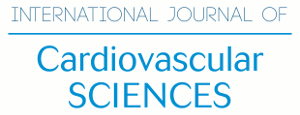Abstract
Heart failure (HF) is the most common cause of pulmonary hypertension (PH), and reduced exercise capacity and exertional dyspnea are the most frequent concerns in patients with PH-HF. Indeed, carbon dioxide end-tidal partial pressure (PETCO 2 ) during exercise is a well-established noninvasive marker of ventilation/perfusion ratio in PH. We aimed to evaluate the effect of aerobic exercise training on PETCO 2 response during exercise in a 59-year-old woman with PH secondary to idiopathic dilated cardiomyopathy. The patient with chronic fatigue and dyspnea at mild-to-moderate efforts was admitted to a cardiorespiratory rehabilitation program and had her cardiorespiratory response to exercise assessed during a cardiopulmonary exercise testing performed before and after three months of a thrice-weekly aerobic exercise training program. Improvements in aerobic capacity (23.9%) and endurance time (37.5%) and reduction in ventilatory inefficiency (-20.2%) was found after intervention. Post-intervention improvements in PETCO 2 at ventilatory anaerobic threshold (23.3%) and change in PETCO 2 kinetics pattern, with progressive increases from rest to peak of exercise, were also found. Patient also improved breathing pattern and timing of ventilation. This case report demonstrated for the first time that aerobic exercise training might be able to improve PETCO 2 response during exercise in a patient with PH-HF.
Aerobic Capacity; Exercise Test; Cardiovascular Diseases; Pulmonary Gas Exchange; High Frequency Ventilation

 Thumbnail
Thumbnail
 A: Carbon dioxide end-tidal partial pressure (PETCO2), B: Carbon dioxide end-tidal partial pressure change (∆PETCO2) from rest to ventilatory anaerobic threshold (VAT), C: breath frequency (BF), D: tidal volume (VT), E: physiologic dead space to tidal volume ratio (VD/VT), F: total respiratory time (TOT), G: expiratory time (TE), H: inspiratory time (TI), I: mean inspiratory flow (VT/TI), J: mean expiratory flow (VT/TE).
A: Carbon dioxide end-tidal partial pressure (PETCO2), B: Carbon dioxide end-tidal partial pressure change (∆PETCO2) from rest to ventilatory anaerobic threshold (VAT), C: breath frequency (BF), D: tidal volume (VT), E: physiologic dead space to tidal volume ratio (VD/VT), F: total respiratory time (TOT), G: expiratory time (TE), H: inspiratory time (TI), I: mean inspiratory flow (VT/TI), J: mean expiratory flow (VT/TE).